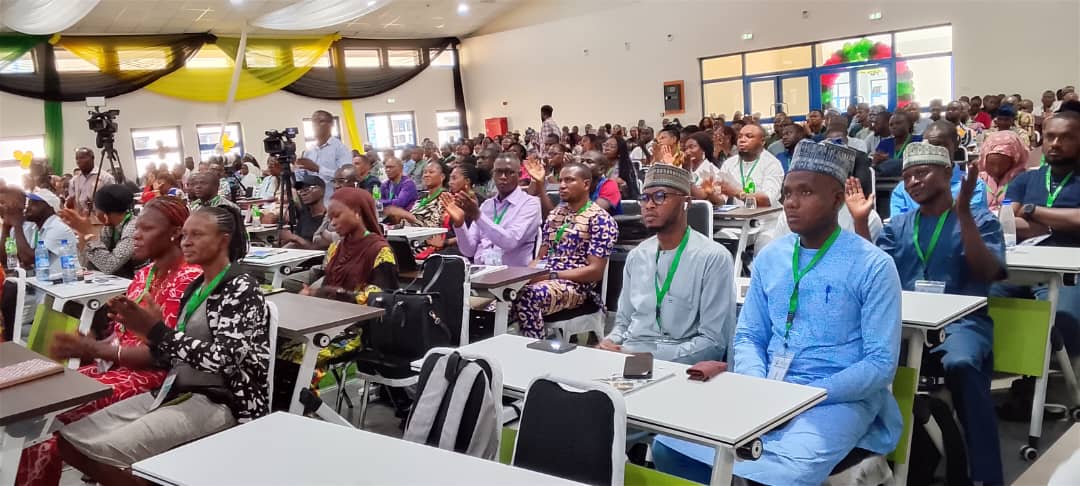
The Federal Government has commended the Bureau of Public Procurement (BPP) for saving the nation from losing trillions of naira to fraudulent contracts in the past year.
It would be recalled that Nigeria’s anti-corruption agencies had estimate that about $18 billion was lost every year due to corruption and financial crimes in public procurement.
Meanwhile, at the 2025 Mandatory Continuous Public Procurement Capacity Training Program organised by Petroleum Technology Development Fund (PTDF) and Bureau of Public Procurement, in Port Harcourt, Rivers State, Monday, the Secretary to the Government of the Federation (SGF), Senator George Akume said that the continuous corruption in government thrives through procurement malpractices.
Represented by his Technical Adviser, Olusegun Adekunle, Akume said such abuses directly steal development from the Nigerian people, stressing that a transparent and well-regulated procurement system is one of the most effective anti-corruption tools.
He said public procurement is recognised globally as a crucial instrument for good governance and corruption prevention, saying that by enforcing open and competitive bidding, due diligence, and oversight avenues for kickbacks and collusion are closed off.
According to the SGF “It is estimated that the share of the ‘leakages’ in our public budget occurs during the contracting of public projects. This is why the anti-corruption agencies have observed that contract and procurement fraud accounts for roughly 90% of all corruption cases in the public sector.
“The lesson is that whatever the percentage, corruption in government thrives through procurement malpractices. Such abuses directly steal development from our people because every naira lost to a fraudulent contract is a naira taken away from building a school, hospital, road, or water supply that citizens desperately need.”
On the other hand, Akume stressed that “a transparent and well-regulated procurement system is one of the most effective anti-corruption tools. Globally, public procurement is recognised as a crucial instrument for good governance and corruption prevention.
“In Nigeria’s case, the reforms introduced by the Public Procurement Act 2007 and the establishment of the BPP have been yielding positive results. Through diligent prior review of contracts and insistence on “due process”, the BPP has saved the nation huge sums of money that would otherwise have been lost.”
Akume continued that by convening the capacity-building exercise, they are fulfilling a legal and moral duty to equip the procurement officers with the skills and ethics required to manage public resources effectively.
“It is also pertinent to recall the policy directive issued by this office in June 2017, which prohibited unqualified personnel from performing procurement functions in any MDA where a career Procurement Officer is available. That circular directed MDAs without qualified officers to engage with BPP for training and to ensure such staff undergo conversion or induction into the procurement cadre.
“The intention and objective include underpinning public procurement as a specialized profession, and to ensure that only trained, certified officers oversee this critical function. This will help us in the quest for professionalization, protect the sanctity of the procurement process and uphold the standards of our profession.”
He urged all public sector agencies that are still in default of the aforementioned policy to change course, warning that the Office of the Secretary to Government of the Federation in conjunction with BPP and anti-corruption agencies, has begun the process of auditing compliance.
“I find it compelling to remind you all that public procurement is the backbone of public service and national development. Virtually every government policy or development plan, from building roads and power stations to providing healthcare and education, relies on procurement to succeed. Studies have shown that public procurement is an essential part of good governance and efficient service delivery.
“Statistics similarly show that it accounts for an estimated 10–25% of our GDP . This means that a significant portion of our nation’s economic activity and development budget flows through procurement processes. How well we manage this process directly impacts our development outcomes.”
He reminded the participants that Nigeria’s current National Development Plan has ambitious targets which includes massive investments in infrastructure and services, adding that “It similarly envisions a total expenditure of hundreds of trillions of naira by 2025”.
Akume said “The effective implementation of these plans hinges on a robust procurement system that ensures every naira is spent wisely. The Plan emphasises the need for strong governance and accountability frameworks which only a transparent procurement system can provide. The National development plan cannot cannot achieve goals like job creation, poverty reduction, and infrastructure expansion without procurement processes that deliver value for money.”
He noted that the procurement officers, plays a crucial role in national development because their skills and decisions determine whether public projects are delivered on time, on budget, and to specification.
Stressing further that President Bola Tinubu has clarified that public procurement is central to governance, especially in times of economic challenges, the SGF said “Even as we navigate fiscal constraints, the public’s expectations for services and infrastructure remain high and urgent.
“Therefore, a well-functioning procurement system should as a matter of course, hasten the delivery of critical services and projects to citizens thereby bridging the gap between policy promises and actual outcomes.
“In doing so, we must however ensure that speed must never come at the expense of transparency and accountability . It will be your duty to balance efficiency with due process, ensuring that fast-tracking development does not open the door to abuse”, he added.
Earlier in his welcome address the Executive Secretary of PTDF, Ahmed Galadima Aminu said they has trained more than 15,000 Nigerians through both local and international scholarship programmes.
He said through collaboration with tertiary institutions, the PTDF has completed the upgrade of 26 departments in various universities and established 214 ICT centres across the country.
He said the interventions include the construction, furnishing, and equipping of specialised laboratories, all strategically targeted at strengthening academic programmes that support the oil, gas, and energy sector.
He said, “Our commitment to quality education also extends to strengthening secondary education in Nigeria, as reflected in the soon-to-be-launched PTDF STEM Programme, which is designed to address foundational weaknesses in the delivery of STEM Education in 1,000 secondary schools across the 774 local government areas in the pilot phase.
“We also recognise that the long-term sustainability of our programmes requires the domestication of our training efforts in order to deepen local content and save foreign exchange for the country.
“This is why the PTDF established two Centres of Excellence—to ensure that Nigerians can access the same high-quality learning experience available in top institutions abroad, right here in Nigeria.
Also speaking, Director General of BPP, Dr Adebowale Adedokun commended President Tinubu for his commitment to institutional strengthening, procurement reform, and transparency that has granted the Bureau the political mandate to elevate professionalism and to position procurement as a strategic engine of the Renewed Hope Agenda.
He also thanked the Rivers State government for the hospitality and for hosting the program, saying that the partnership exemplifies the collaborative spirit that underpins the shared quest for improved service delivery.
He added that “This training is therefore not merely an event, it is a solemn commitment to fortify the capacity to deliver public projects with fidelity, efficiency and transparency”.
Adedokun who revealed that the training is the 16th edition since its commencement since 2009, said about 1000applied, while 350 participants were selected for the training.
He however, urged the participants “to engage fully, to ask probing questions, to sharpen your expertise and to reaffirm your ethical resolve”, noting that”Nigeria needs procurement officers who are competent, confident and courageous enough to uphold due process at all times”.
Blessing Ibunge



